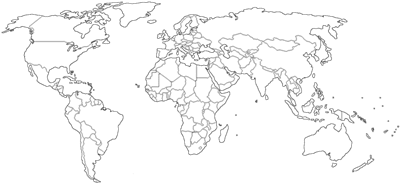Results.
Showing 1 to
No Tender Found! |

Most trusted source for Tendering Opportunities and Business Intelligence since 2002
Get access to latest SAARC renewable energy tenders and bids. Find business opportunities and business intelligence for SAARC renewable energy tenders, SAARC solar tenders, SAARC windmill tenders, SAARC biomass tenders, clean energy tenders, SAARC solar pv tenders, SAARC solar farm tenders, SAARC wind farm tenders, SAARC solar power tenders, SAARC photo voltaic tenders, SAARC solar lights panels tenders. Find SAARC renewable energy bid invitations, tenders, bids, procurement, RFPs, RFQs, ICBs. Search for SAARC renewable energy tenders online.
Renewable energy is energy that is collected from renewable resources that are naturally replenished on a human timescale. It includes sources such as sunlight, wind, rain, tides, waves, and geothermal heat. Renewable energy stands in contrast to fossil fuels, which are being used far more quickly than they are being replenished. Although most renewable energy sources are sustainable, some are not. For example, some biomass sources are considered unsustainable at current rates of exploitation. Renewable energy often provides energy in four important areas: electricity generation, air and water heating/cooling, transportation, and rural (off-grid) energy services. About 20% of humans' global energy consumption is renewables, including almost 30% of electricity. About 8% of energy consumption is traditional biomass, but this is declining. Over 4% of energy consumption is heat energy from modern renewables, such as solar water heating, and over 6% electricity. Globally there are over 10 million jobs associated with the renewable energy industries, with solar photovoltaics being the largest renewable employer. Renewable energy systems are rapidly becoming more efficient and cheaper and their share of total energy consumption is increasing, with a large majority of worldwide newly installed electricity capacity being renewable. In most countries, photovoltaic solar or onshore wind are the cheapest new-build electricity. Many nations around the world already have renewable energy contributing more than 20% of their energy supply, with some generating over half their electricity from renewables. National renewable energy markets are projected to continue to grow strongly in the 2020s and beyond. A few countries generate all their electricity using renewable energy. Renewable energy resources exist over wide geographical areas, in contrast to fossil fuels, which are concentrated in a limited number of countries. Deployment of renewable energy and energy efficiency technologies is resulting in significant energy security, climate change mitigation, and economic benefits. However, renewables are being hindered by hundreds of billions of dollars of fossil fuel subsidies. In international public opinion surveys, there is strong support for promoting renewable sources such as solar power and wind power. Renewable energy technology projects are typically large-scale, but they are also suited to rural and remote areas and developing countries, where energy is often crucial in human development. As most of the renewable energy technologies provide electricity, renewable energy is often deployed together with further electrification, which has several benefits: electricity can be converted to heat, can be converted into mechanical energy with high efficiency, and is clean at the point of consumption. In addition, electrification with renewable energy is more efficient and therefore leads to significant reductions in primary energy requirements.
The South Asian Association for Regional Cooperation (SAARC) is the regional intergovernmental organization and geopolitical union of states in South Asia. Its member states are Afghanistan, Bangladesh, Bhutan, India, the Maldives, Nepal, Pakistan and Sri Lanka. SAARC comprises 3% of the world's area, 21% of the world's population and 4. 21% (US$3. 67 trillion) of the global economy, as of 2019. SAARC was founded in Dhaka on 8 December 1985. Its secretariat is based in Kathmandu, Nepal. The organization promotes development of economic and regional integration. It launched the South Asian Free Trade Area in 2006. SAARC maintains permanent diplomatic relations at the United Nations as an observer and has developed links with multilateral entities, including the European Union. Countries in SAARC - Bangladesh, Bhutan, India, Maldives, Nepal, Pakistan, Sri Lanka, Afghanistan.
No Tender Found! |